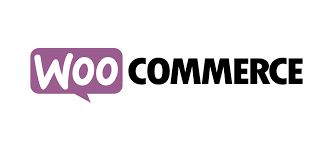If you’re new to the world of e-commerce, and trying to figure out how to take the plunge, it can all seem a bit overwhelming. Can you use existing online stores, or do you need your own website? How do you choose between the dozens of different ones? Are there ones that you shouldn’t, or even can’t use? And, most importantly, how do you even get paid?

Thankfully, there are a few platforms that empower Caribbean businesses to incorporate e-commerce. One of them is Magento, that used to be the biggest e-commerce tool around. While there’s an Enterprise version for large businesses to take advantage of, there’s an open source Community Edition that is more than robust enough for anyone else. Because of the wealth of open source users of the platform, they have a large community that is quick to support other users if they’re having issues.
One of the downsides, though, is that it’s also one of the more complicated platforms. It requires the users to have their own servers to host their stores, customizations have been known to take some time to load, and the product support isn’t free. All of that means that, if something goes wrong, it could mean major downtime for your store, and a decent amount of revenue lost.

The biggest competitor to Magento is WooCommerce, which is also an open source plugin for WordPress, letting you turn your existing WordPress website into your professional online store. It starts off free to use, and offers almost limitless customization, much like WordPress does for its site. Also, working with such an established website platform comes with some advantages in terms of search engine optimization, meaning that you can relatively trust that people can find you and your store faster and easier.
The biggest challenge to using WooCommerce, though, is the same as many of WordPress’ plugins – customer support can be a challenge. Setting up WooCommerce requires a decent amount of technical knowledge, not unlike the knowledge you’d need to create a WordPress website in the first place. Luckily, our partner Webgold has plugins that are integrated to FAC available for WooCommerce and can guide you through setting up your online store (see the end of the blog for a full list of partners).
Then there are platforms that are growing in popularity for businesses and even social media platforms – sites like Shopify and BigCommerce.

The thing that makes Shopify particularly special is that, of all of the many e-commerce options out there, this is the fastest and easiest to use for entrepreneurs and small businesses trying to make a start. There’s also no shortage of themes from third-party developers, meaning that you can customize your page to look just like you need it to, in the same amount of time it might take you to make a new social media account. Beyond the merchant fees they charge per transaction, it’s also pretty cheap. They even have a blog function that lets you share more about your business from your new Shopify site, potentially boosting traffic to your store.
The thing that makes it so easy is also a part of its downside – it’s made for small creators and companies. As a result, it has some strict limitations on the number of products you can list for sale, and some customization aspects become more difficult. There is a Shopify Plus, a more enterprise-focused version of the service, but as one might expect, it doesn’t come for free. Shopify also requires some plugins to be as effective as it can be, and those plugins can vary between the tens and the hundreds of dollars.

BigCommerce, on the other hand, has more built-in features than any other competitor. You can sync products across multiple online marketplaces, automate certain tasks, and even set the carts of visitors to save items even when they’ve been inactive or closed the page. If you set it up just right, BigCommerce can turn your site into your business’ version of Amazon. And, besides it’s a website builder, you also get to decide what your website looks like for your customers.
But BigCommerce isn’t really set up for smaller creators, and as such doesn’t have a ‘light’ version of its platform. You have to pay for a basic plan here, much like Shopify, but also will have to pay for their rather expensive templates. It’s also not as easy to use and navigate as Shopify, which makes it less suited to small businesses or entrepreneurs.
These, though, are just four of dozens of different platforms that you can use to bring your own online store to life. Thing is, not all of them are compatible with Caribbean payment gateways like First Atlantic Commerce.
See below for available plugins and vendors, and stay tuned to our blogs for more e-commerce tips.
Plugins for the following platforms are available from these vendors:
Magento
info at bizspice.com
WooCommerce
info at quoviz.com
Shopify
info at webgold.co

